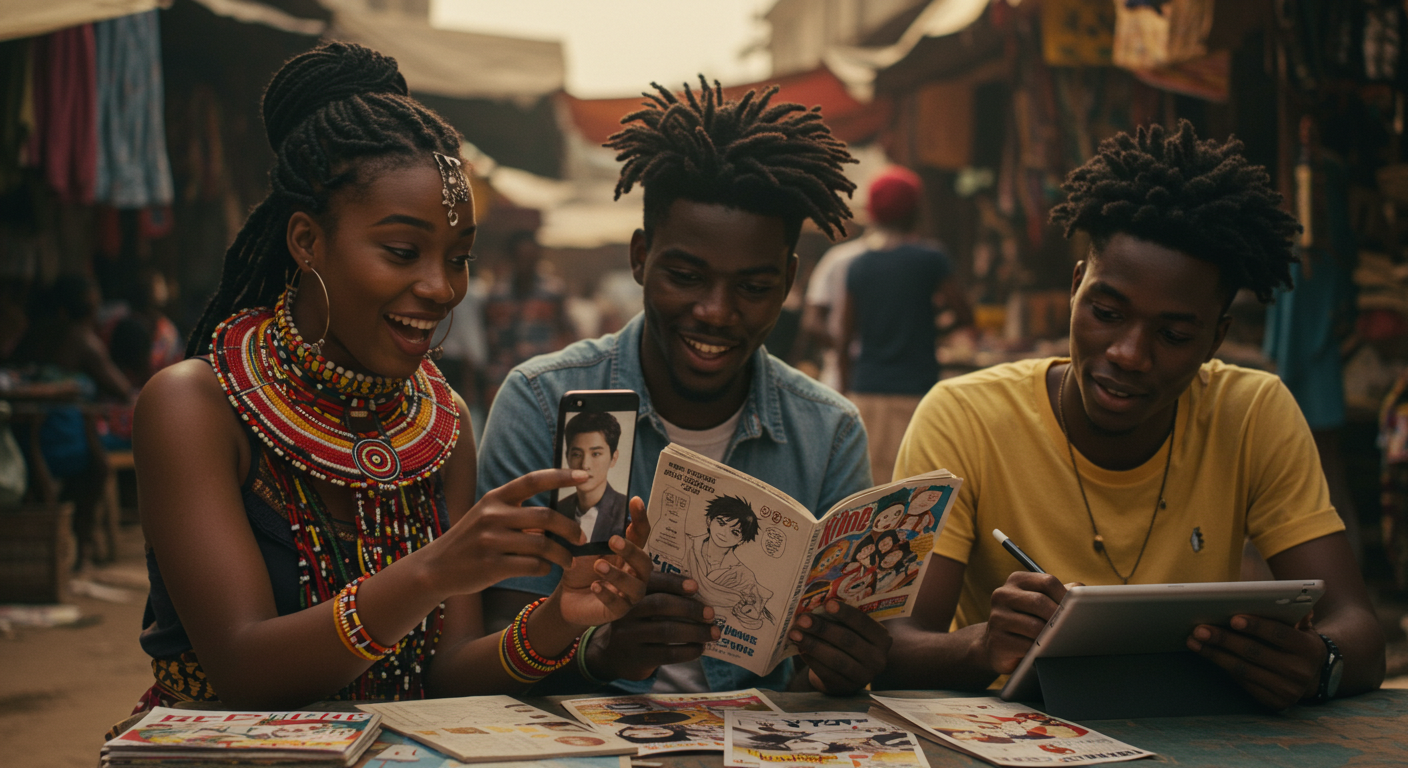From Seoul to Soweto: Africa’s Expanding Pop Culture Obsession
In bedrooms, WhatsApp groups, and online forums across Africa, passionate fans are bingeing K-Dramas, dissecting anime, and creating fan art that rivals any global community. But while foreign content dominates, Africa’s own fandom culture is rising—rooted in love for storytelling, expressive community, and digital innovation.
Let’s dive into how Africans are participating in global fandoms, while simultaneously building their own.
The K-Drama Craze in Africa
Korean dramas (K-Dramas) have found a second home in Africa—especially in Nigeria, Kenya, Ghana, and South Africa. Thanks to streaming platforms like Netflix, YouTube, and Viu, viewers now access high-quality K-Dramas with subtitles and dubbing.
Why K-Dramas resonate:
Emotional storytelling (similar to Nollywood!)
Family themes and traditional values
High production quality and strong character development
Popular shows like Crash Landing on You, Descendants of the Sun, and Itaewon Class have loyal African fans who:
Learn Korean phrases
Participate in drama challenges
Write fanfiction on platforms like Wattpad
Anime Fandom in Africa
Anime is no longer niche—it’s mainstream across Africa.
From Naruto to Attack on Titan, anime fans discuss plot arcs, cosplay characters, and even create Afro-inspired anime content.
Local adaptations are emerging:
The Legend of Orisha (Nigeria): An Afro-anime pilot based on Yoruba deities
Strike Guard: Origins (Nigeria): A possible anime adaptation in the works
Conventions and cosplay events are gaining popularity, including:
Lagos Comic Con
Nairobi AnimeCon
Pretoria OtakuFest
African Fandoms: Homegrown Love
While fans love international content, African stories are building fandoms too. Think:
The Wedding Party or Blood Sisters from Nigeria
Shuga (MTV Base) with pan-African appeal
Music fandoms for Burna Boy, Diamond Platnumz, or Sho Madjozi
Online fanbases engage through:
Memes and parody skits
Dance challenges
Fan art and remixed soundtracks
These grassroots fandoms foster pride, creativity, and ownership of African pop culture.
Social Media: Fandom Central
African fandom culture thrives on Twitter (especially with KOT—Kenyans on Twitter), WhatsApp, TikTok, and Facebook. Fans organize:
Virtual watch parties
Debate threads ("Who’s better: Zuko or Killua?")
Meme battles comparing K-drama characters to African uncles or anime villains to corrupt leaders.
Fandom and Identity
Participating in fandoms is more than just fun—it’s a way of belonging. African youth use fandoms to:
Explore identity beyond traditional labels
Connect globally across time zones and language barriers
Create art, fiction, and community
In places where young people often feel politically or socially unheard, fandoms offer voice, structure, and visibility.
The Business of Fandom
African fandoms are influencing:
Merch sales (t-shirts, stickers, hoodies)
Creative jobs (fan illustrators, subtitlers, editors)
Event tourism (Comic-Cons, fan meetups)
Some brands now collaborate with influencers from anime/K-Drama spaces to tap into their devoted followings.
Final Word
Africa’s fandom culture is alive and electric—open to the world, yet fiercely grounded in its own creativity. From watching Korean heartbreak stories to drawing anime warriors with dreadlocks, African fans are global players with local flavor.
The future? African fandoms will only grow—fuelled by fast internet, storytelling passion, and the shared joy of being deeply, unapologetically obsessed.



